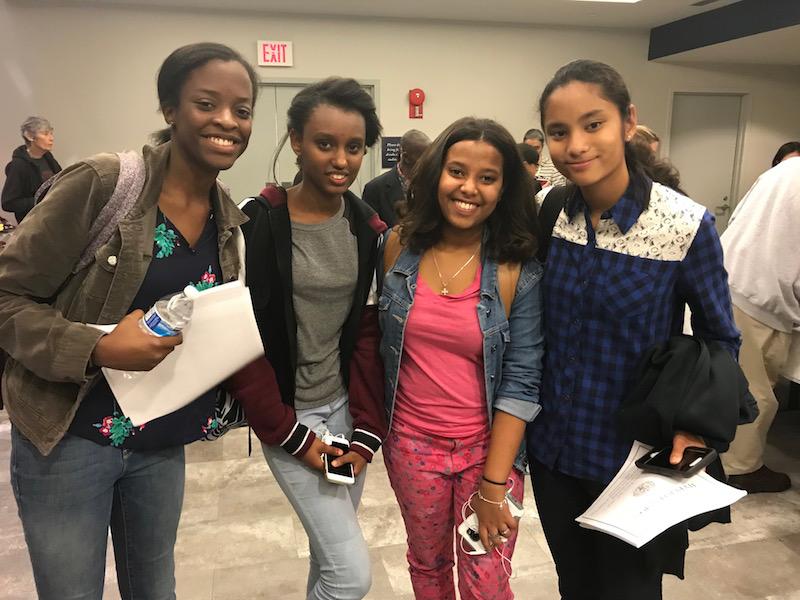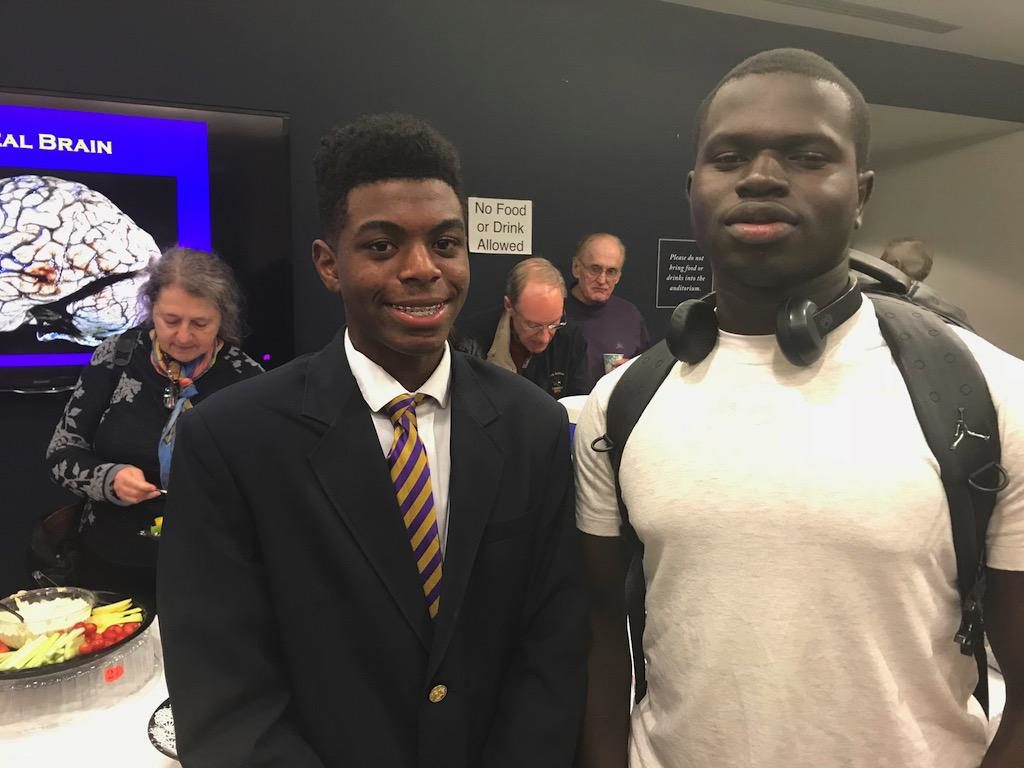GEP 2017 Mini Med Exploration
Explorations with Mini Medical School
This year, our Gateway students particpated in the Georgetown School of Medicine Mini Medical School.The Mini-Medical School program pulls practical and applicable lessons from medical school courses and is taught by medical school faculty. Participants gain an appreciation for what Georgetown University medical students experience during the four years of undergraduate medical education. Like our students, participants explore various areas of the basic and clinical sciences by attending lectures. This year, our Gateway students learned about multitple sclerosis, stress related disorders and mind body medicine, hypertension, neuroscience, transfusion medicine, orthopaedics, and drug interactions.
Mini Med Blog
Mikayla Hill
In Mini-Med School I learned that there are different types of medicines and medical practices used in hospitals. I learned about different kinds of diseases and treatments. I learned about how drugs interact with our bodies to fight off disease. I learned about surgical procedures to enhance patient lives. I learned about many different professionals in the medical field. Overall I learned how the body functions and how to help people using different methods or treatments.
My favorite session was the one about Mind-BOdy medicine because it talks about different ways to treat someone other than pharmaceuticals, In the end, the speaker handed out biofeedback dots and told us to relax which would change colors based on the temperature of our body. It was interesting to see the connection between relaxing and how it outwardly changes the body.
A career in medicine takes a lot of work and dedication. It requires a lot of studying and re-studying things that you have already learned. If you really want to become a doctor you have to put in 110% because you are saving peoples lives so you really have to know what you are doing.
Erica Serrrano
In Mini Med School, I learned about a variety of different topics in the basic and clinical sciences. We covered topics ranging from basic neurology to autoimmune disorders like Multiple Sclerosis (MS). In these sessions, I learned about different diseases or disorders, treatments, why different diseases occur, and how they can be prevented. The lectures had many visuals, which were helpful to understand the information in a easier way, and explained the topic well.
While I enjoyed all of the Mini Medical School sessions, my favorite session was on Multiple Sclerosis and other autoimmune disorders of the nervous system. The lecture was easy to understand and the causes and effects of the disorder were interesting to hear about. There are many people affected by MS today and learning about its impact on the body is important to help others affected by it. Advice I would give to other students who are interested in a medical career would be to ask questions and to be open to many different fields of medicine. Going to Mini Medical School has increased my interest in working in this field. Learning about a variety of professions and diseases has helped me learn and narrow down the field of medicine I want to focus on. Asking questions is also very important because they can give people opportunities to share their opinions or to learn more about a certain topic. It is also important to have fun!
Deneke Kalkidan
First before anything, I want to thank you all for giving me this kind opportunity. It was really amazing being able to participate in mini medical program there and learning this quality lecture from wonderful professors. I learn how Medicine works in this small world and I learn different types of topics every time about psychology and human anatomy.
The most interesting topic was the orthopedics lecture and stress-related disorders & mind body medicine. Those two topics were more interesting or my favorite topic because stress was more related to me. I am senior and am going to college so I get stressed out so I learn how to free myself from stress. The topic about orthopedics is my very favorite one because I want to become orthopedics surgeon. I real like it I got too much tips and information also it will help me on future now. My advice for how want to participate this program I will really encourage them am very sure they will learn more than what they expect so I will say everyone how are interested in medical program they should come to Georgetown university mini medical school.
Bamlak Kidane
Mini-Med program was very interesting and it gave me more knowledge. I learned different topics every Tuesday. The topic that took my attention was stress-related disorders and mind-body medicine because stress is always in people everyday life “especially for med students in college” said Professor Michael Lumpkin, Ph.D. It starts with acute stress which is minor stress. Then when acute stress gets serious it will turn to chronic stress this is when acute stress develops “ lead to dysfunction and disease.” It will affect many parts of our body. The experiment we did was also interesting. We had a chance to check our stress by using a black dot and we put it on our hand pulse and relax but, mine didn’t change the color of the dot. It was black which means I am stressed. However, it didn’t work for me, I really liked it.
Drug interactions were my next favorite lecture from all because Professor John Partridge made it interesting and he was explaining every single thing. He made me feel like I was taking AP class in High School. He gave an explicit lecture. He taught us how the drug interacts with receptors in order to give a response to pain.
I would advise students who are interesting in medicine Carrere to go over and have more knowledge. It also helps students to find out their interest. They will also give people a chance to share any of topics they want to learn more about.


